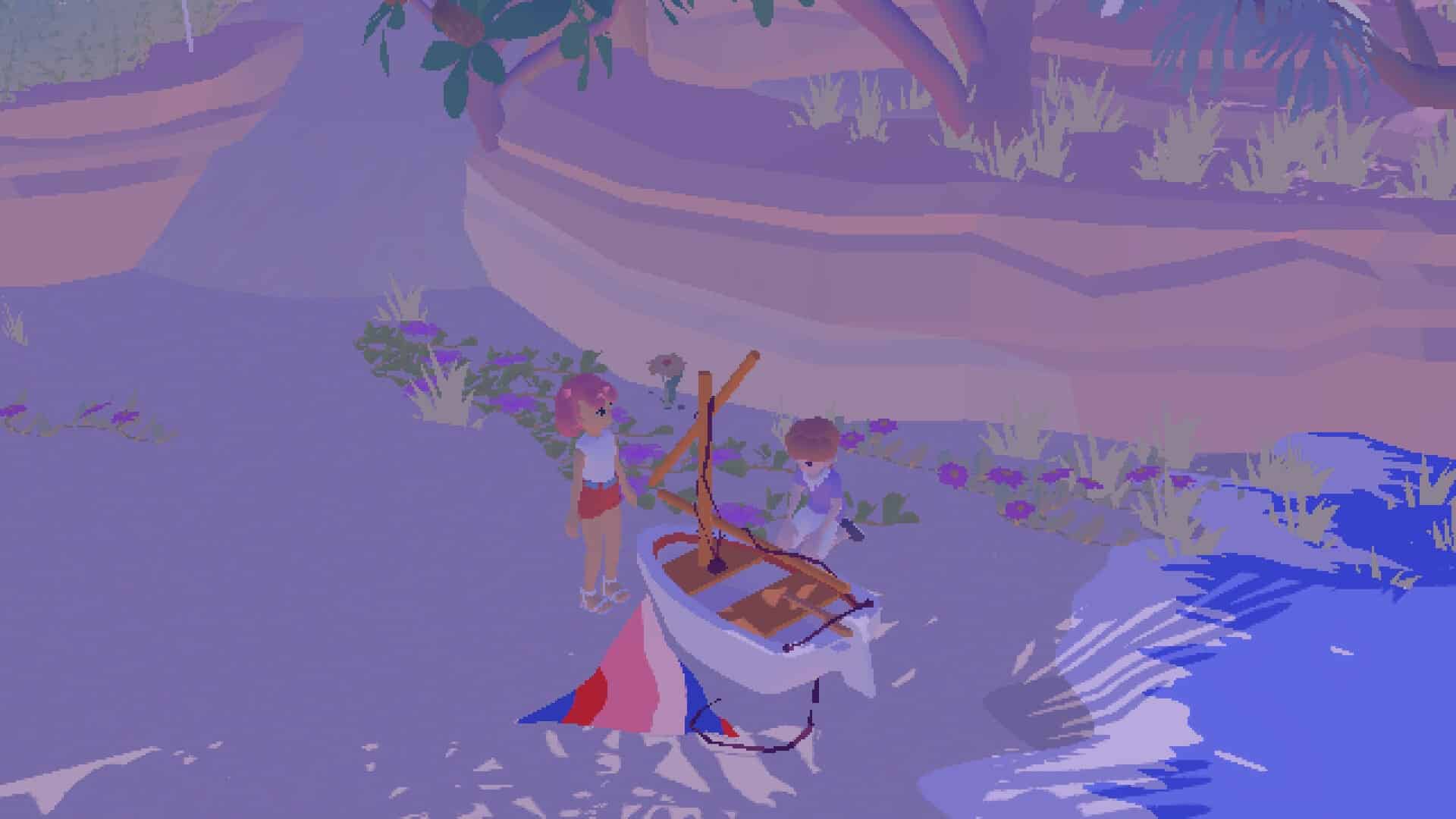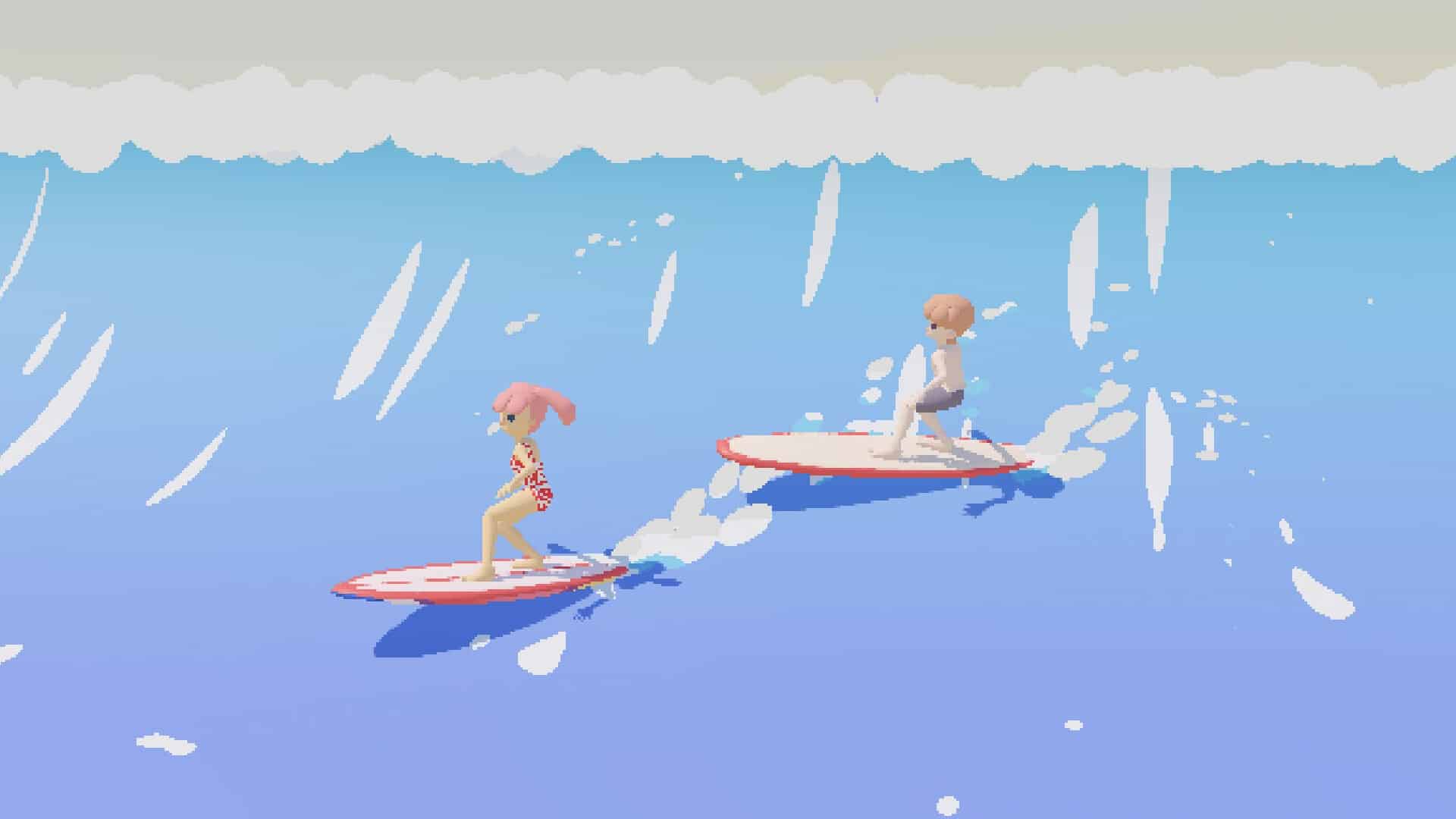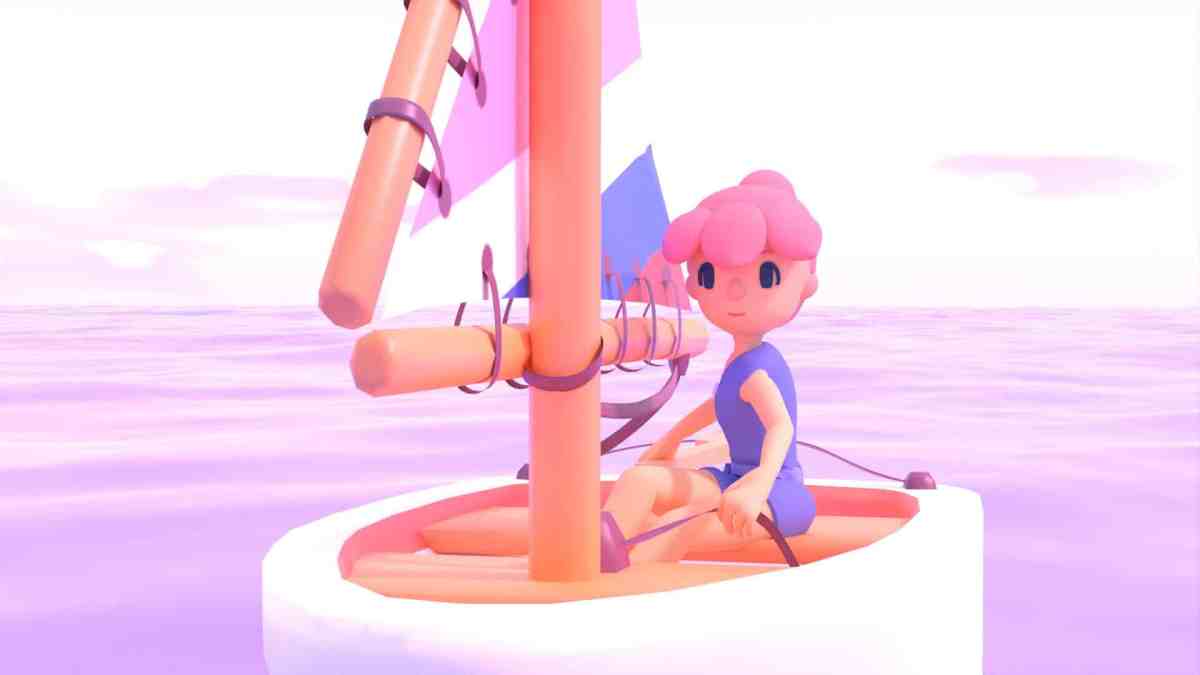Surf Club‘s Olive Bay is a beautiful, pastel-coloured dream. Its skies are forever pink, and purple waters lap at the shores of idyllic beaches. The clouds roll in, but the sky never grows dark. Overhead, the sun shines through the leaves of frees, painting friendly pink shadows on the Earth.
Olive Bay was your childhood hometown. You made friends here, and experienced the freedom and joys of childhood playing in the sun, walking along the beach, collecting shells, skipping stones. But you’re older now, and Olive Bay isn’t the same. Returning to your hometown is painful.
So begins the layered story of Surf Club. In this game from Australian developer Olivia Haines, you embody Holly, a young woman who is contacted by a childhood friend named Bede, six years after she moved out of Olive Bay. Holly and Bede could have been something, but life and circumstances pulled them apart, leading to an estrangement which forms the basis of Surf Club‘s reflections.
On playing the game’s demo, it was not explicitly clear what drew Holly and Bede apart, but their longing for reconnection and desire to understand their break shines through.
Surf Club is a game of dual narratives, with the present colliding with warm memories, as Holly reminisces about life before, and what it could be after.

I didn’t grow up by the sea, but regardless, there is a pervasive nostalgia in Surf Club. It speaks to the want of a better, purer time, where the world seemed much simpler. As with Pieced Together, it played on my experiences making friends in childhood, and letting those friends go in the natural course of change. Nothing lasts forever, and our circumstances are dictated by our personal needs.
Read: Pieced Together preview – What it means to feel seen
As you explore Surf Club, clues to Holly and Bede’s fate are revealed. You experience Olive Bay as a child, and you may walk along the beach, talking of a brighter future. You’re building a boat with Bede, and as in Kingdom Hearts, you imagine the boat will take you to an exciting, far-off place.
Then your adult self appears, with a guiding narrative that underlines that not everything will be fun and games forever. The innocence of childhood is precious and fleeting.
Interspersed throughout this narrative are real-life home video clips, presumably from Haines’ own childhood. They reveal snippets of a beach location, swaying trees, and sandy plains, and do well to add layers of personalisation and intimacy to the story. They’re a constant reminder of the real feelings and experiences backing this adventure. They encourage a reflection of childhood, and of friendships long gone.

Sitting by myself, playing Surf Club on a lonely computer at SXSW Sydney 2024, I felt… sad. Surf Club evokes emotions incredibly well, with its idyllic version of Olive Bay, and in the intrusion of the present on the past. It’s slow moving and sincere, and encourages an immediate relatability, with its beautiful, stylish art only adding to its warm sense of nostalgia.
I get the sense that Surf Club will leave me vulnerable. That it speaks to a particular kind of nostalgia commonly tied with girlhood. I didn’t get the whole picture during SXSW Sydney, but it’s certainly one I’m keen to see more of in future. There is a spark of magic in Surf Club, and I feel compelled to discover it fully.
Surf Club is currently in development, and does not have a firm release date. You can learn more about the game, and wishlist it, on Steam.





